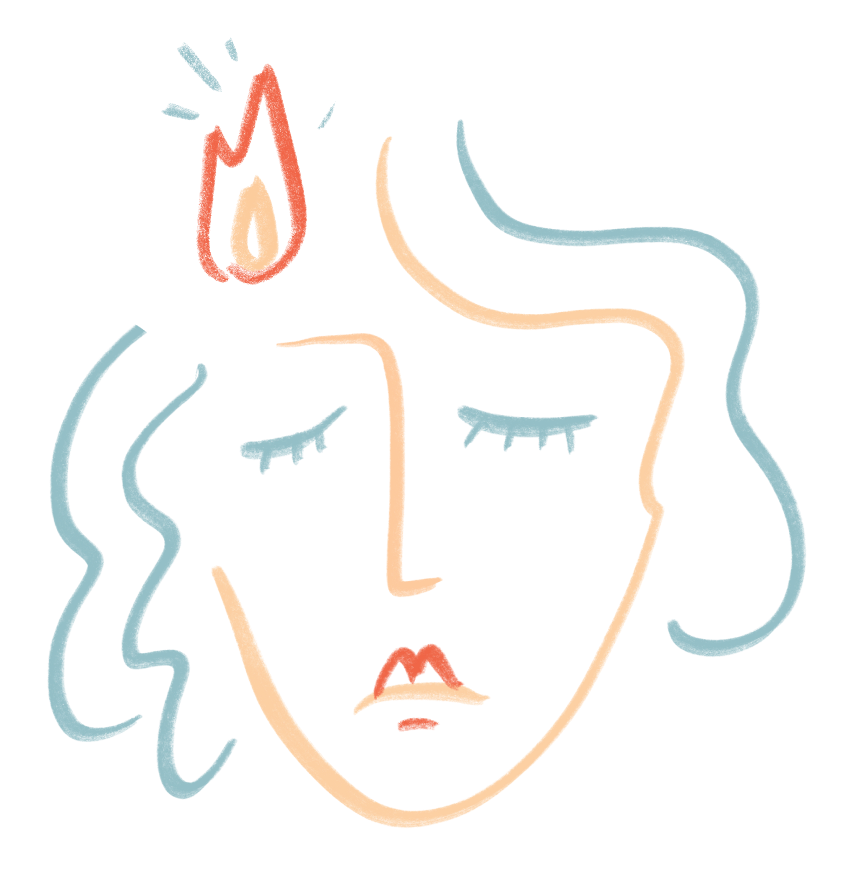Vaginal discomfort definition
Vaginal discomfort during menopause includes vulvovaginal and urinary symptoms, such as burning, dryness, itching, and soreness. You might experience one or a combination of these symptoms.
- Vaginal and vulva burning: The sensation of tingling and burning in your genital area can be hard to ignore. It can be even harder to find a comfortable position. These uncomfortable sensations are usually due to decreased hormone levels but could also indicate other vaginal or vulva issues that may happen during menopause. These include urinary tract infections (UTIs) or changes in the vaginal bacteria or skin disorders of the vulva
- Vaginal dryness: This can happen due to hormonal changes during menopause, which affect the moisture level in your vagina and your ability to lubricate the vagina during sex
- Itching: This can be hugely uncomfortable and sometimes quite painful. Itching happens due to declining estrogen levels during menopause, which can lead to vaginal atrophy, the thinning and drying of the vaginal walls
- Vaginal and vulva soreness: This can include a throbbing feeling and puffiness of your labia
Discover your personalized treatment options

How likely is vaginal pain during menopause?
- Symptoms of vaginal discomfort and pain in the genital area tend to increase during menopause. Vaginal pain can also continue to increase postmenopause after years of low estrogen levels
- Less than a third of those who are perimenopausal and early postmenopausal report vaginal discomfort or dryness of some sort. Up to half of those who are late postmenopausal report some form of vaginal discomfort or dryness
- Vaginal burning can occur at any point in the menopause journey, sometimes even during perimenopause or after many years of decreased estrogen levels
- Those who have a history of diabetes and those with lower BMIs tend to be more likely to report vaginal and vulvar discomfort and pain
Read more about the stages of menopause.
RELIEF FOR VAGINAL DISCOMFORT
1. Lubricants. These can help keep your vagina moisturized. Lubricants can also be used to make sex less painful. Choose water-based lubricants as they are less likely to irritate your skin further.
2. Topical estrogen. Talk to your healthcare provider about your vaginal pain and they may suggest vaginal estrogen as a suppository that you insert into your vagina, a vaginal cream, or a vaginal ring. A ring pessary releases estrogen and supports your vaginal walls.
3. Hormone therapy (HT). HT can help vaginal dryness, itching, soreness, and some urinary symptoms. Plus hot flashes, sweats, sleep issues, and mood changes. Talk to your healthcare provider as HT is not suitable for everyone. Read more about HT risks and benefits.
4. Avoid irritants. Buy unperfumed bath products and skin-kind detergents.
Menopause vagina pain FAQs
I need to know if sex is part of my future





